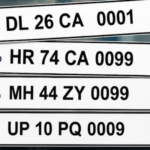Removing essential oil from your skin can be done using a few simple steps. Essential oils are concentrated and can sometimes cause skin irritation or discomfort, so it’s important to remove them properly. Here’s how to do it:
Materials You’ll Need:
- Mild liquid dish soap or a gentle, fragrance-free cleanser
- Warm water
- Cotton balls or a clean cloth
- Carrier oil (optional)
- Mild moisturizer (optional)
Step-by-Step Process:
- Act Quickly:
- If you accidentally spill or apply too much essential oil to your skin and it’s causing discomfort, act quickly to remove it.
- Dilute with a Carrier Oil (Optional):
- If the essential oil is causing a burning sensation or skin irritation, you can dilute it by applying a carrier oil, such as coconut oil, olive oil, or jojoba oil, to the affected area. Gently rub the carrier oil onto the skin to help dilute and spread out the essential oil.
- Wash with Mild Soap and Water:
- Wash the affected area with mild liquid dish soap or a gentle, fragrance-free cleanser. Use lukewarm water to avoid further irritation.
- Rinse Thoroughly:
- Rinse the area thoroughly with warm water to remove the soap or cleanser completely. Make sure there is no residue left on your skin.
- Blot Dry Gently:
- Pat your skin dry with a clean cotton ball or cloth. Avoid rubbing, as this can irritate the skin further.
- Assess the Situation:
- After washing, assess your skin to see if the essential oil has been completely removed. If you still feel discomfort or see residue, you may need to repeat steps 3 to 5.
- Moisturize (Optional):
- If your skin feels dry or irritated after removing the essential oil, you can apply a mild, fragrance-free moisturizer to soothe and hydrate your skin. Choose a moisturizer that is suitable for your skin type.
- Seek Medical Advice (If Necessary):
- In rare cases, essential oils can cause severe skin reactions. If you experience persistent irritation, redness, or a burning sensation that doesn’t improve after thorough cleansing, consult a healthcare professional or dermatologist for guidance.
It’s important to remember that essential oils are potent and can cause skin sensitivity or allergies in some individuals. If you plan to use essential oils on your skin in the future, consider doing a patch test on a small area of skin before applying them more widely to ensure that you don’t have a negative reaction.
Also Read:
https://highspeedpost.com/how-to-get-hay-out-of-fleece-jacket/
https://highspeedpost.com/how-to-get-hellofresh-cheaper-reddit/
https://highspeedpost.com/how-to-get-help-from-the-smile-again-foundation/




























+ There are no comments
Add yours